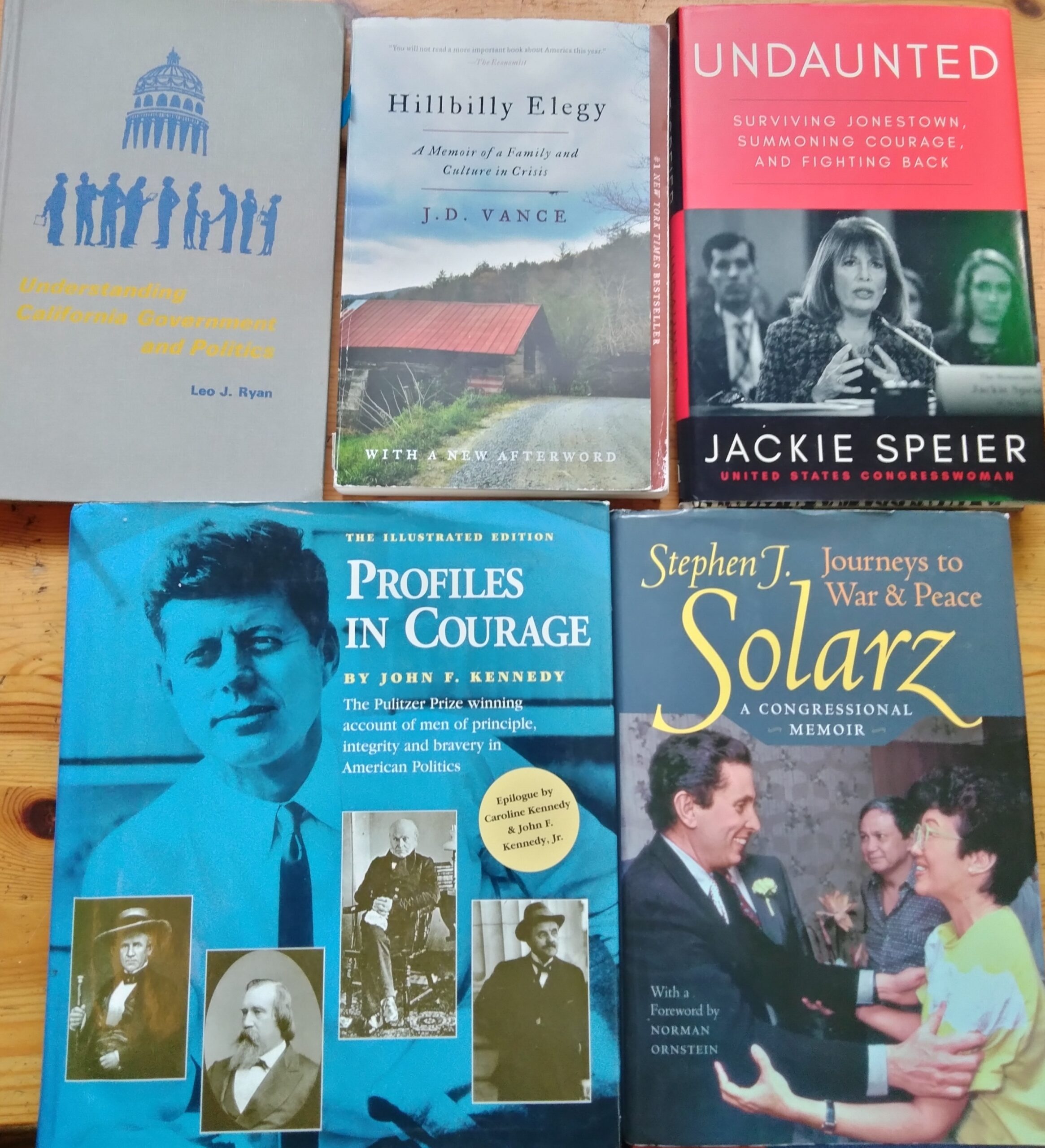How to Cover Washington Politicians in an Innovative Way

Most Americans have a rough picture of what a Washington reporter looks like and does. He is a faceless guy in a jacket and tie or a gal in a blouse or pantsuit who shouts a question at the President at a press conference or chases a senator or House member down a white marble hallway.
Yet a few of us try (try!) to dig deeper.
Most thumb their fingers through a rolodex or use its digital equivalent to call sources, an approach reporters Bob Woodward and Carl Bernstein of The Washington Post made famous in their coverage of the Watergate scandal in the early 1970s. A few hardy souls try less popular methods, one of which is heading to a (darkened) archive to examine (dusty and yellowing) paper records, a (laborious) approach I plan to discuss in a future post.
Another method is simple yet so unconventional I have never read or heard a reporter discuss it: reading the memoir, autobiography, or call to action of a well-known politician to grasp his or her point of view.
One Man’s Method to Covering Washington
In Washingtonian magazine this month, New York Times book critic Carlos Lozada discussed how he turns reading political memoirs to something like an art form. He must be one of the few people who has read books by former Vice President Mike Pence, Vice President Kamala Harris, Governor Ron DeSantis of Florida, and then Senator Ben Sasse of Nebraska.
Mr. Lozada does more than read lots of political books. He reads each book closely. In the interview, he elaborated on his system:
I try to go through each book three times. Once, just a straight read, taking lots of notes in the margins. Then I put it aside, if I have time, for a day or so and then come back at it with a highlighter and speed-read it a second time, focusing on the areas that clearly struck me the most. And the third read is with a file open on my computer. I just start dumping things into the file: notes and ideas and quotes and questions. And then I put the book aside entirely, and that becomes the raw material for a review. It works out usually to about 1,000 words per 100 pages of a book. Sometimes if a book is more dense, then it’s a lot more. Sometimes it’s a lot less, and that tells me, too, what I kind of thought of a book—how many notes I felt compelled to take down.

(Image courtesy of Derek Goldberg on Unsplash).
I read, review, and evangelize on behalf of books. Indeed, without reading them I would be lost on my current book project.
Both Peoples Temple leader Jim Jones and Representative Leo Ryan are dead. Besides interviews with those close to them, I read Mr. Ryan’s book and unpublished manuscripts and Mr. Jones’ speeches. They help me understand each man’s motivations, aspirations, hopes, and fears. For example, in Understanding California Government and Politics, Mr. Ryan noted that despite the public’s love for Western films, Americans settle their disputes not through a gun battle or showdown but rather the rule of law. This convinced me that he was not the glory hound that no less a figure than future Supreme Court Chief Justice John J. Roberts, Jr. made him out to be.
Yet my approach has not been as sophisticated as Mr. Lozada’s. I like the idea of reading a book a second time with a highlighter and scanning for the parts that catch your attention. This would add depth to a review that might lack it otherwise.
The Dirty Little Secret of the Washington Reporter
To read a politician’s book at all cuts across the grain in the Washington press corps. As the late, great Michael Kelly wrote, the dirty little secret of Washington reporters is they read few if any books. Netflix, yes; movies, yes; the newspapers, yes, but books? That’s terra incognita practically. (The exceptions may be Barack Obama and J.D. Vance’s memoirs, both of which were huge bestsellers). Sure, they scan books by politicians for juicy revelations, but to read a whole book, that’s asking too darn much!
Mr. Lozada’s approach is not perfect. It can miss the wider context in which politicians operate. See my post on Vladimir Putin, although I, too, may have missed a key part of the Russian leader’s story. To understand a topic fully, a reporter needs to read many books, not just the subject at hand.
In addition, reading political books has limited value, alas. For writing features, profiles, and books, the method is great. Yet few Washington politicians have written a book (or in some cases undoubtedly, even read one!). Rare is the writer who can pull off Mr. Lozada’s feat of making a living by reading books. A surer route is following the lead of Messrs. Woodward and Bernstein and working your sources.
Yet Mr. Lozada won a Pulitzer Prize in 2019 and justifiably so. He toils in a different vineyard from his competitors in the Washington press corps.
-30-

0 Comments